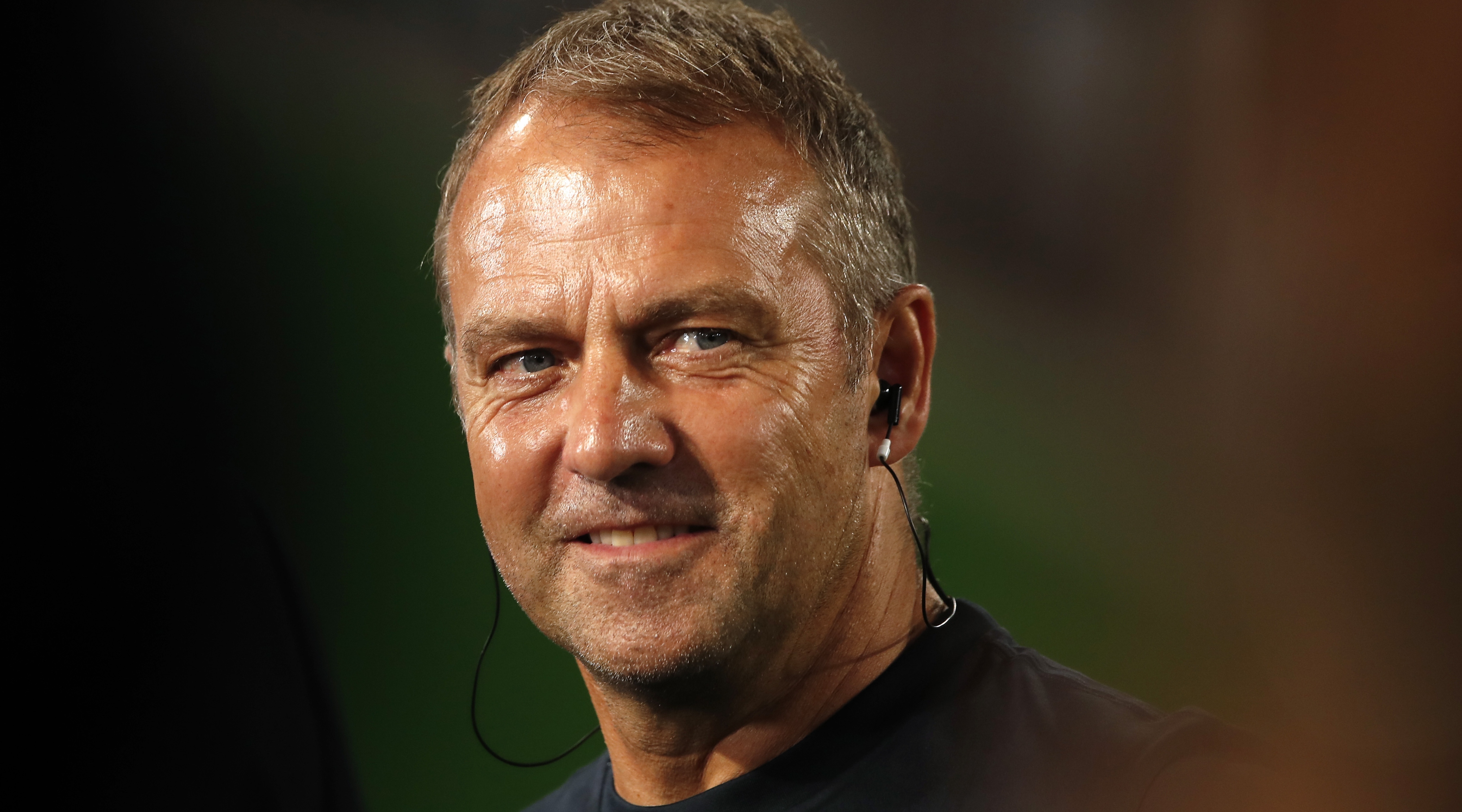Whatever happened to caring about the No.1 shirt?
Never have Europe's big guns enjoyed so much competition between the sticks than this season, but is there really hunger to be first choice or is bench-warming all too easy? Louis Massarella investigates...
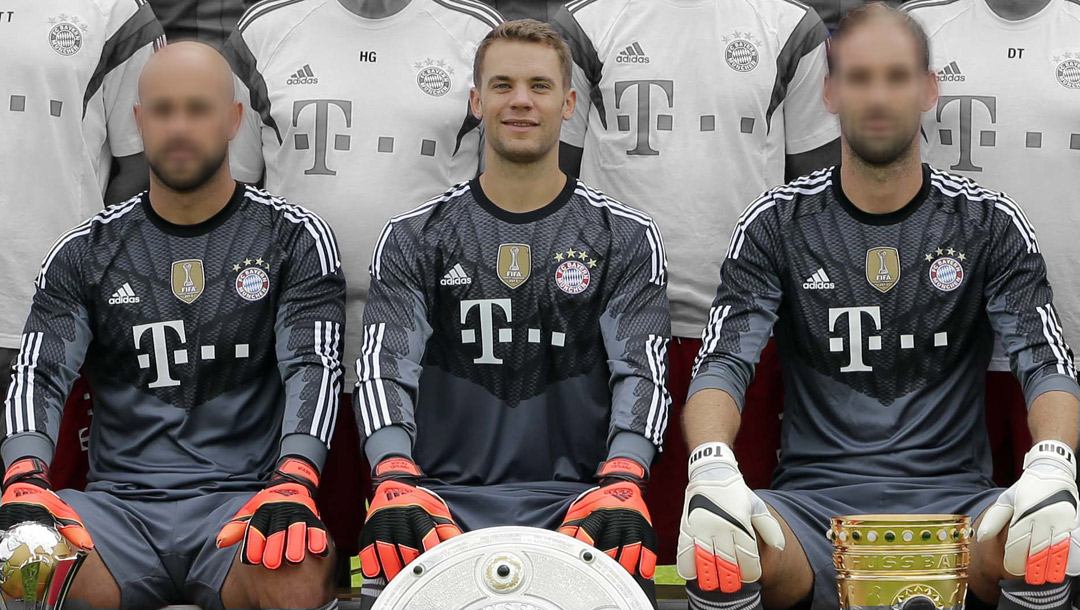
Even by modern footballing standards, it was a strange thing to say. “I’ve joined because I want to win as many trophies as I can,” declared Pepe Reina, putting pen to paper on a three-year deal to join Bayern Munich from Liverpool.
The Spanish goalkeeper is certainly at the right club, but is he in the wrong position? Manuel Neuer proved beyond reasonable doubt at the World Cup that he is the finest stopper on the planet, and barring injury or a drastic dip in form, will remain the Bavarians’ No.1 for the foreseeable future. Yes, Reina may get to pose in lederhosen and have steins of beer poured over him next spring, but “win trophies”? We’re not sure that counts, Pepe.
Yet, the soon-to-be 32-year-old is one of a growing number of top-class keepers to move to big clubs with no guarantee – nay, little chance – that he’ll be first choice. Why, you ask, would a goalkeeper of all players, make such a move at the peak of his powers? Why, indeed…
Dutiful wife, loyal mistress
“Not many top-class goalkeepers want to move to clubs to sit on the bench unless there is a huge pay rise to be had,” noted one respected Arsenal blogger when discussing Wojciech Szczesny’s need for some decent competition this season.
The best features, fun and footballing quizzes, straight to your inbox every week.
He suggested Newcastle’s Tim Krul, one of the Premier League’s best keepers last season and a World Cup hero with the Netherlands, albeit from the bench. Instead, Arsene Wenger plumped for David Ospina, outstanding for Colombia in Brazil. Moving from modest Ligue Un-ers Nice, the 25-year-old can indeed expect a significant salary hike. But there’s also the feeling that Wenger doesn’t fully trust the Pole, despite coming off his best season to date. In which case, you can understand Ospina’s arrival.
The same can’t be said across north London, where Michel Vorm becoming one of Spurs’ first signings of the summer was a surprise given a more urgent need to strengthen elsewhere. The Dutchman, 30, who joined from Swansea, even seemed to accept that he’d be second choice behind Hugo Lloris. “Every top club has two top goalkeepers,” said Vorm. “It suits the club’s philosophy that there is a broad selection [of players]. Especially when we see that Tottenham is active in a lot of competitions.”
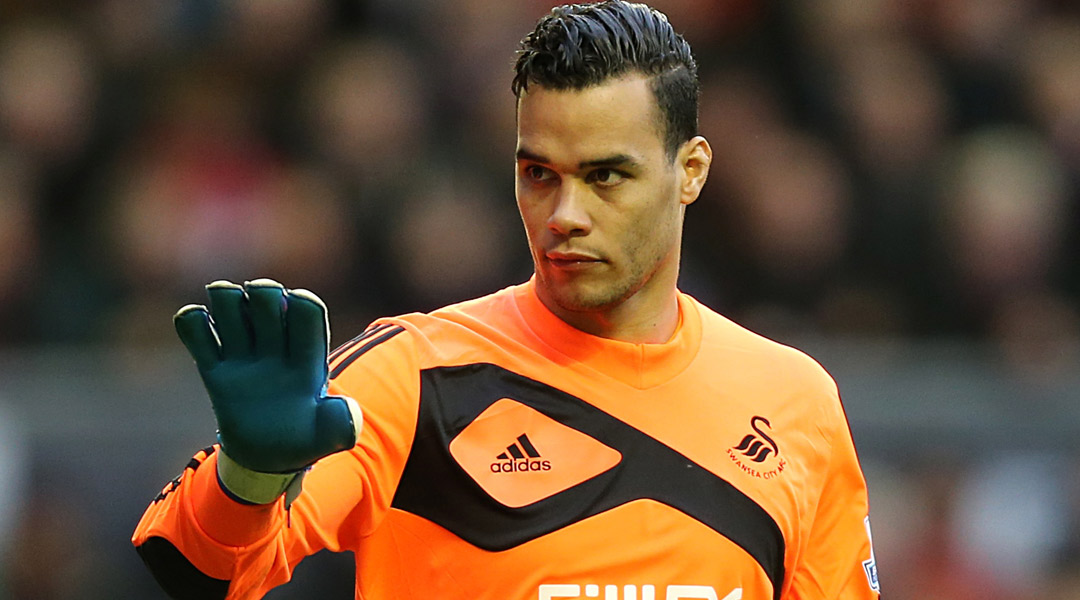
The Capital One Cup and Europa League it is then, although Spurs would argue that if Lloris were injured, it's better to have another decent sweeper-keeper on standby than having to change their defensive tactics to accommodate the still capable but significantly less mobile Brad Friedel.
But we digress. The point is, if top clubs can afford to stockpile the best keepers – the way the likes of Chelsea and Manchester City have been doing with outfield players for many years – why wouldn’t they? Having your cake and eating it, keeping a dutiful wife as well as a loyal mistress, not wanting somebody but not wanting anybody else to have them… it’s hardly a noble policy, but it’s not breaking any rules.
Likewise, better for a bench-warming keeper to photobomb the end-of-season celebrations than have nothing to celebrate at all, right? Or, as Liverpool’s No.2 Brad Jones puts is: “There are a lot of players who could go and play at another level every week, but I would rather push myself at the top and see how far I get than go somewhere else and plod along.” You have to admit, it’s a compelling argument.
It’s make your mind up time
The dynamics are completely different at Chelsea, Manchester City and Barcelona, three other clubs who can now boast at least two top-class keepers.
Joe Corrigan most have known something we didn’t last season. “I wonder if, when the summer comes around, the manager will look at the goalkeeper situation and try to get someone with more stature to really push Joe [Hart],” said the legendary City keeper.
Lo and behold, Manuel Pellegrini brought in Willy Caballero, one of La Liga’s most consistent keepers with Malaga over the past three seasons. Yet, on paper – despite Pellegrini offering no guarantees over his starting position – Hart has the better CV, more talent and nearly six years on the Argentine newbie. But Corrigan could have been onto something when he said Hart’s dip in form and subsequent demotion to the bench last season “was a wake-up call. He was in a comfort zone. England’s No.1 with no competition, City’s No.1.”
Indeed, Hart seemed to emerge stronger from his series of clangers. But with the ungainly Costel Pantilimon as his replacement, Corrigan suggests his fellow Englishman always knew deep down that he would regain his place. “You need someone who pushes and pushes you,” continued Big Joe. In Caballero, Pellegrini clearly believes he’s got him.
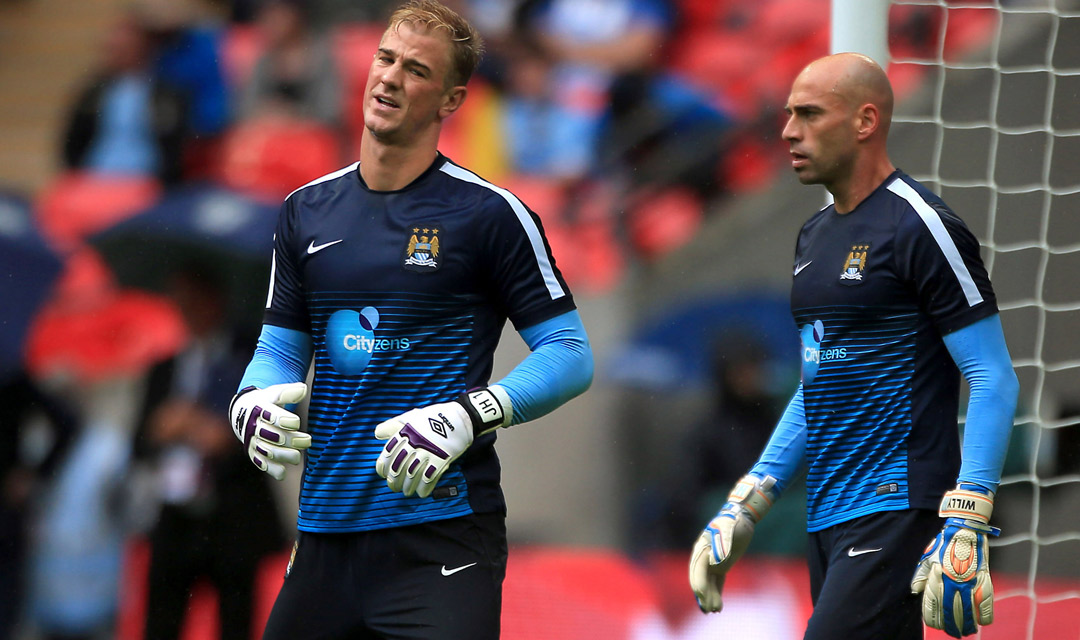
Chelsea have pushed that competition for places even further this summer, with Petr Cech and Thibaut Courtois seemingly holding a pre-season audition to see who will get the first bite of the cherry. To be fair to Jose Mourinho, the Belgian was signed as a 19-year-old of great promise in 2011, two years before the Portuguese returned to the Stamford Bridge hotseat. It just so happens that Courtois seems to have fulfilled that promise spectacularly during two seasons on loan at Atletico Madrid, something Mourinho witnessed up close as Real Madrid manager in 2012/13. You can hardly blame him for bringing him back.
Meanwhile, Cech has just enjoyed his best season for some time. “I was never afraid to make decisions,” says Mourinho, amid rumours Courtois will get the nod and Cech will leave. Just don’t expect the Special One to allow that to happen until “the world’s best young keeper” has proven himself in the Premier League.
Barcelona also have two keepers vying for the No.1 shirt on a seemingly level playing field. Only theirs – Chile keeper Claudio Bravo and young German, Marc-Andre ter Stegen – are both new signings after Victor Valdes let his contract run down, and therefore new to the level of pressure they will be under at the Nou Camp. As at Chelsea, the two keepers are nearly a decade apart in age. Courtois and Ter Stegen are clearly the future, but who is the present? The answer could even be: all of them.
When two become No.1
Unable to decide who out of Ray Clemence and Peter Shilton was the better goalkeeper in the late ’70s and early ’80s, England manager Ron Greenwood simply played them in alternate games before finally going with Shilton for the 1982 World Cup.
But that was international football, where games are often months apart. Not until last season did we have the first high-profile example of this happening at club level. Diego Lopez, who was only signed by then-Real Madrid coach Mourinho as cover for the injured Iker Casillas in the middle of the 2012/13 season, kept his place even when the Spain captain returned. Lopez remained first choice under new gaffer Carlo Ancelotti last season, but only for La Liga games.
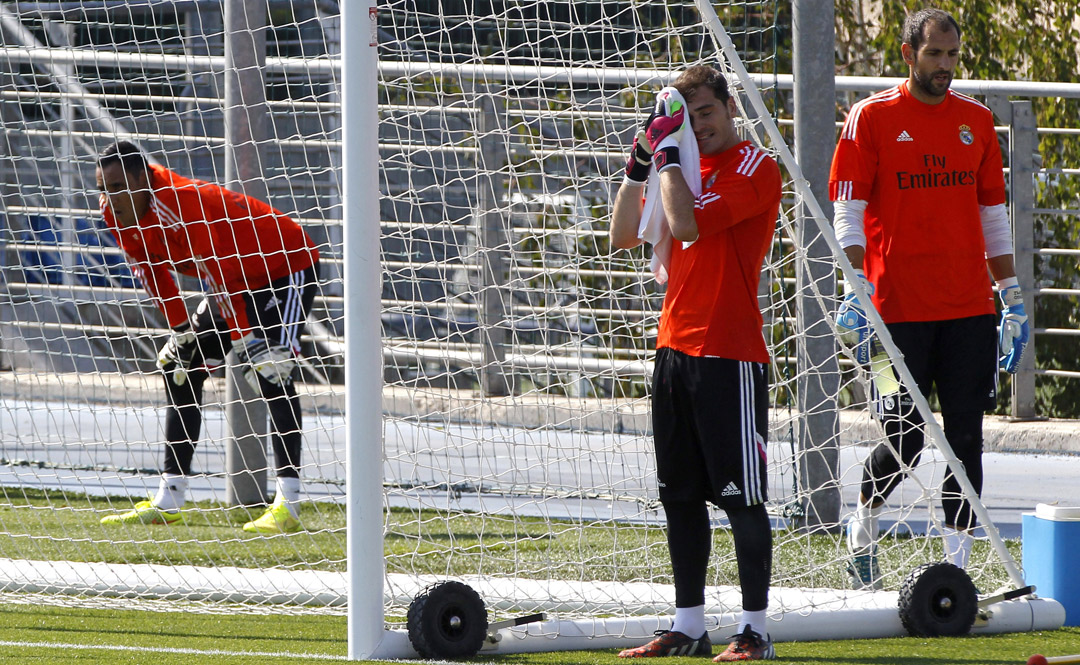
Did it work? Well, Madrid won the Champions League and Copa del Rey with Casillas in goal. Can it work long-term? Not according to Justin Bryant, an American goalkeeper who never quite made the grade this side of the pond, and author of Small Time: A Life in the Football Wilderness. “It’s not good for anyone,” he insists. “It doesn’t make either keeper happy, and a team needs a settled goalkeeper. It’s also usually a very public sign that the manager does not trust either goalkeeper.”
Ancelotti seemed to agree, with Lopez on his way to AC Milan, only for Keylor Navas, who was sensational for Costa Rica at the World Cup, to arrive from Levante at the same time. It seems the laid-back Italian is keeping his options open.
Can we expect similar indecision from Wenger, Mourinho and Luis Enrique? Don’t count on it. Can we expect the axe to drop if their first choices don’t perform? Don’t bet against it.
No regrets?
So what of the players themselves? “I think at the highest level, the dedication it takes to get there makes it hard to be satisfied with not playing, even if the money is good,” reckons Bryant.
So hard, in the case of Steve Harper, that the consequences can be dire. “If I could speak to myself 10 or 12 years ago, I’d do it differently,” said the veteran keeper – now No.2 at Hull – as he prepared to leave Newcastle last year after 20 seasons on Tyneside. Having challenged best mate Shay Given for the No.1 jersey before 2000, Harper played just a handful of games for the next six years, with Bobby Robson in particular repeatedly persuading him to stay in his native north-east. “They were tough times,” he said. “The way I got through it was with the support of my family, by going to see a counselor and with medication from the doctors.”
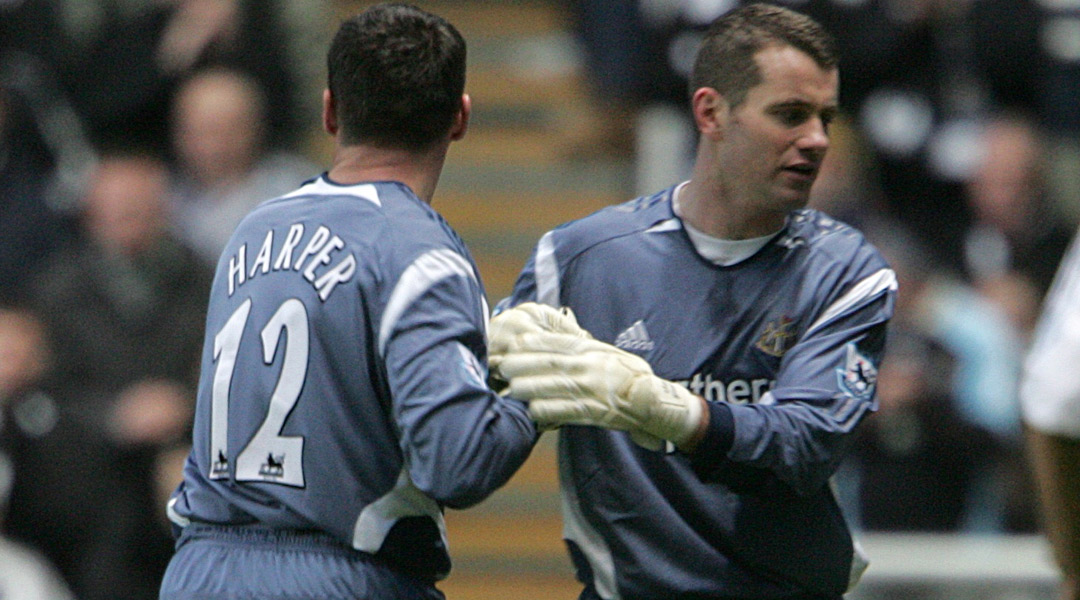
While the likes of Vorm, Reina and even Anders Lindegaard at Manchester United may not suffer from depression as Harper did, settling for second best could cost them the chance to be No.1 for their countries. Reina, in particular, seems to be the next cab off the rank, playing Spain’s final game at the World Cup against Australia after Casillas’ stinkers against Holland and Chile.
With Valdes’ future also up in the air, might Reina’s bench-warming at Bayern see David de Gea stake a claim to be Spain’s new No.1 instead? Or could we even witness football’s most convoluted rotation policy, with the four of them taking it in turns?
Either way, at club level at least we’re going to be deprived of seeing some of the best keepers in the world in action this season. And that, no matter what their employers and bank balances say, is a shame for the neutrals.
 Join The Club
Join The Club





